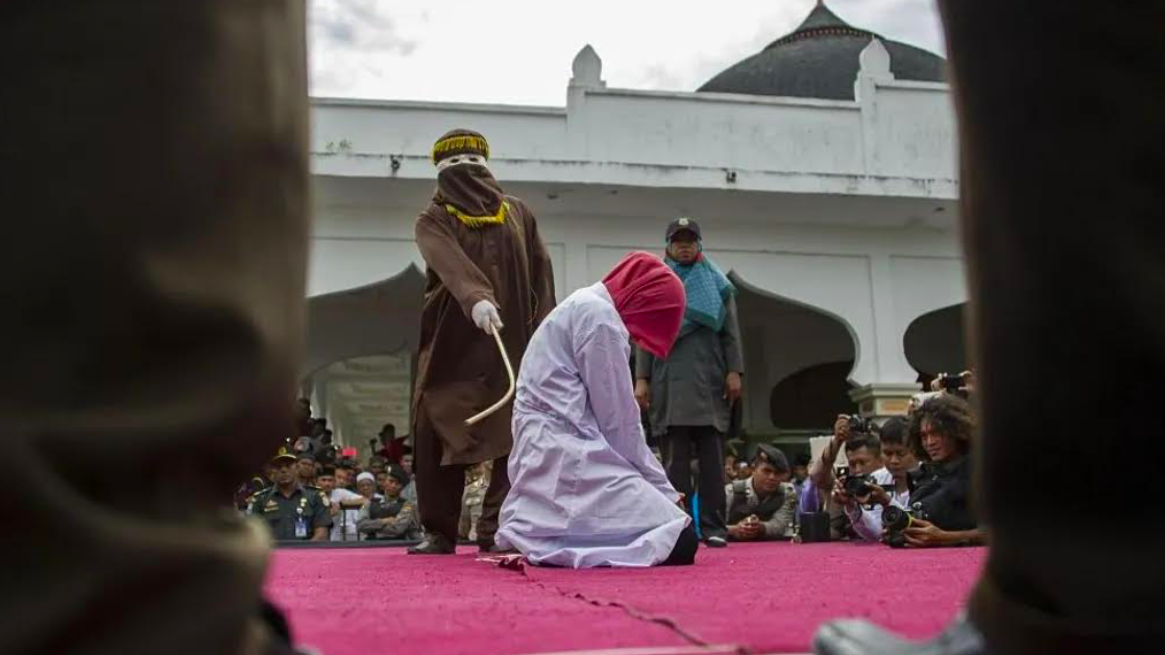Terengganu: 42-year-old man to be caned for 'proximity' to a woman
Mohd Affendi, a 42-year-old widower, spent time on 16 June with a woman not from his family. If no appeal is made, he will be struck six times with a rotan cane on 16 December. His action is an offence in the four Malaysian states ruled by the Malaysian Islamic Party. So far, this kind of punishment has been meted out only in Terengganu, the first public caning involving two lesbians in 2018.
Kuala Lumpur (AsiaNews) – Mohd Affendi Awang, 42, was sentenced to six strokes with a rotan (rattan) cane and a fine of RM4,000 (about US$ 900) after pleading guilty to khalwat, i.e. being in proximity in private with a member of the opposite sex who is not an immediate family member.
The judge who issued the sentence, Kamalruazmi Ismailessere, is a member of the Terengganu Syariah (Sharia) High Court. In addition, if the fine is not paid, a six-month prison sentence will be imposed.
Mohd Affendi, a widower with five children, is a Malay Muslim who works for a construction firm; he will be the first male offender to be caned in Terengganu public for committing khalwat for a third time.
Khalwat is an offence under Section 31(a) of the Terengganu Syariah Criminal Offences Enactment Amendment 2022.
The court ordered that the sentence be carried out at the modern Al-Muktafi Billah Shah Mosque in Kampung Ladang, Kuala Terengganu, on 6 December after Friday prayers, if no appeal is filed within 14 days.
Mohd Affendi pleaded guilty to being with a 52-year-old woman, who was not his wife or mahram (family member with whom marriage is illegal), around 1.40 am on 16 June in a house in Kerteh, near Kemaman.
The sentence of public caning was imposed on the widower since it was his third offence after he was convicted of the same crime in July last year and February this year.
In his ruling, Judge Kamalruazmi said that, according to Islamic law (Sharia), the imposition of any punishment must serve as a lesson, education, and prevention, so that the same crime is not repeated, and can serve as a reminder to the community.
“You have been whipped and jailed, yet still do it again. The first-time punishment should have given you a reason to repent,” he said.
The prosecution was led by Deputy Chief Prosecutor Nik Mohd Shahril Irwan Mat Yusof, while Mohd Affendi was not represented by a lawyer.
On 19 February, Mohd Affendi was sentenced to four strokes with a cane and a fine of RM3,000 (US$ 675) after pleading guilty to khalwat for a second time.
Earlier this year, on 17 April, a single mother was found guilty of khalwat in Terengganu and sentenced to caning by the Syariah High Court.
Judge Rosdi Harun meted out the punishment on the 37-year-old woman who pleaded guilty. In this case, she received a six-stroke sentence and RM4,000 fine, as well as eight months in jail.
The woman, who has a son, was charged under Section 31(b) of the Syariah Criminal Offences Enactment 2022 for meeting a 40-year-old man who was not her husband or mahram in a house in Kemaman, at around 3.15 pm on 31 January. She was convicted of a similar offence in 2018; at the time, she was fined.
Under the Terengganu Syariah Criminal Offences Amendment Enactment 2022, a second and subsequent offences entail six strokes with a cane, a maximum fine of RM5,000, or three years in prison.
Rosdi Harun ordered that the sentence to be executed on 6 May at Marang prison. However, it is not known whether it was carried out.
Also on 3 September 2018, two Muslim women, aged 22 and 32, were convicted of attempting to have sex together in a car. They were sentenced to six strokes each by the Terengganu Syariah High Court and were whipped in a religious court.
According to an official, this was the first conviction for lesbian relations and the first public caning in the state.
Human rights activists reacted with outrage to the convictions. In Malaysia, LGBT identities are illegal under both secular and religious laws. More than 100 people attended the caning of the two women.
A member of Terengganu State's Executive Council, Satiful Bahri Mamat, defended the punishment, saying it was not intended to "torture or injure" and had been carried out in public to "serve as a lesson to society”.







.png)










